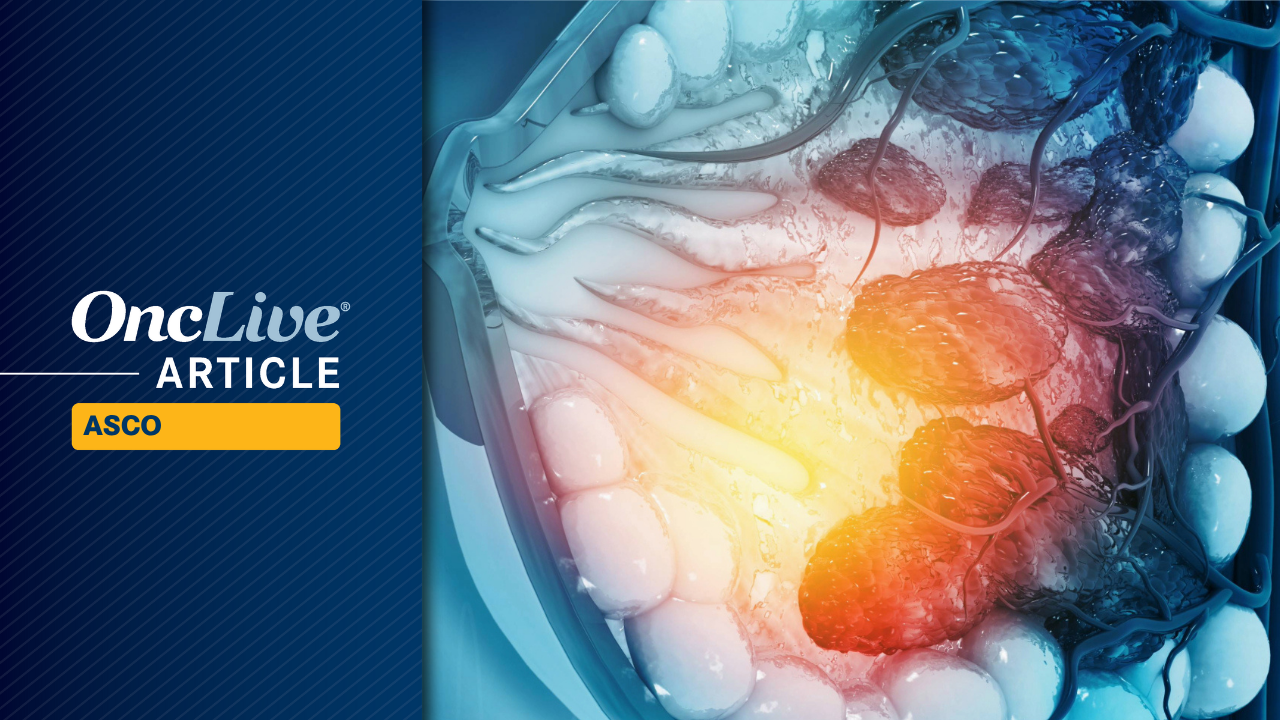Health
Gedatolisib Therapy Shows Promise in Advanced Breast Cancer Trial

Data from the phase 3 VIKTORIA-1 trial has revealed that the combination therapy of gedatolisib and fulvestrant, with or without palbociclib, significantly enhances progression-free survival (PFS) in patients with hormone receptor-positive, HER2-negative, PIK3CA wild-type advanced breast cancer. This patient group has previously shown disease progression following treatment with a CDK4/6 inhibitor and an aromatase inhibitor. The results were presented at the 2025 ESMO Congress.
The trial demonstrated that both the triplet regimen of gedatolisib, fulvestrant, and palbociclib, and the doublet combination of gedatolisib with fulvestrant provided superior PFS outcomes compared to fulvestrant alone. Specifically, the triplet therapy reduced the risk of disease progression by 76%. The median PFS for this group was reported at 9.3 months compared to just 2.0 months for patients receiving fulvestrant alone, with a hazard ratio of 0.24.
Key Findings and Clinical Significance
In addition to improved PFS, gedatolisib was associated with a greater median duration of response (DOR) and higher objective response rates (ORRs) than fulvestrant alone. Sara A. Hurvitz, MD, senior vice president and director of the Clinical Research Division at Fred Hutch, emphasized that “VIKTORIA-1 is the first study to demonstrate a statistically significant and clinically meaningful improvement in progression-free survival with PAM inhibition in patients with PIK3CA wild-type disease.”
In the trial, the ORR for the triplet therapy was found to be 50%, with a disease control rate (DCR) of 85.5%. The median DOR for this group was 17.5 months. In contrast, the doublet regimen yielded an ORR of 28.3% and a DCR of 77.0%, with a median DOR of 12.0 months. The monotherapy arm of fulvestrant alone showed an ORR of just 1.0%.
Treatment involving gedatolisib was generally well tolerated across both combination arms, with no new safety signals identified. According to Hurvitz, a limited number of patients discontinued treatment due to adverse events, with three patients in the triplet arm and four in the doublet arm withdrawing for this reason. Notably, two deaths occurred in the triplet therapy arm, and common treatment-related adverse events included stomatitis, rash, diarrhea, and hyperglycemia.
Understanding the PAM Pathway
The significance of the PAM pathway in breast cancer growth is profound, especially as it contributes to both endocrine and CDK4/6 inhibitor resistance. Although most therapies currently available target specific components of the pathway and are limited to patients with PI3K-pathway activation, patients with wild-type disease remain underserved. Hurvitz explained that previous therapeutic attempts to block the PAM pathway entirely have faced challenges due to toxicity.
Following promising preliminary results from the combination of gedatolisib with palbociclib and fulvestrant, the VIKTORIA-1 trial aimed to evaluate this potent multitarget PAM inhibitor in patients who had already progressed on a CDK4/6 inhibitor and aromatase inhibitor.
The VIKTORIA-1 trial involved 392 patients who were randomized into three treatment arms. Those receiving fulvestrant monotherapy could cross over to either combination treatment upon disease progression. Eligibility criteria included measurable disease, prior treatment with a CDK4/6 inhibitor and an aromatase inhibitor, and verified PIK3CA status. Patients with type 2 diabetes or prior therapy with certain inhibitors were excluded from the trial.
The co-primary endpoints of the trial focused on comparing PFS between the gedatolisib-fulvestrant combinations and fulvestrant monotherapy. Secondary endpoints included overall survival (OS), objective response rates, safety, and quality of life.
Igor Gorbatchevsky, MD, chief medical officer of Celcuity, expressed enthusiasm about the results, stating, “We are very excited that treatment with gedatolisib combined with fulvestrant with or without palbociclib was well tolerated by the VIKTORIA-1 patients.” He noted that the incremental improvements in median PFS for both gedatolisib regimens offer potentially transformative results for patients suffering from HR-positive, HER2-negative, PIK3CA wild-type advanced breast cancer.
In tandem with the trial results, a rolling new drug application (NDA) has been submitted to the FDA as part of its Real-Time Oncology Review Program based on data from the trial. The NDA is anticipated to be completed before the end of 2025, with topline data expected in the first half of 2026. Meanwhile, the phase 3 VIKTORIA-2 trial, designed to investigate gedatolisib in a frontline setting, is currently ongoing.
-

 Science2 months ago
Science2 months agoInventor Achieves Breakthrough with 2 Billion FPS Laser Video
-

 Health2 months ago
Health2 months agoCommunity Unites for 7th Annual Into the Light Walk for Mental Health
-

 Top Stories2 months ago
Top Stories2 months agoCharlie Sheen’s New Romance: ‘Glowing’ with Younger Partner
-

 Entertainment2 months ago
Entertainment2 months agoDua Lipa Aces GCSE Spanish, Sparks Super Bowl Buzz with Fans
-

 Health2 months ago
Health2 months agoCurium Group, PeptiDream, and PDRadiopharma Launch Key Cancer Trial
-

 Top Stories2 months ago
Top Stories2 months agoFormer Mozilla CMO Launches AI-Driven Cannabis Cocktail Brand Fast
-

 World2 months ago
World2 months agoIsrael Reopens Rafah Crossing After Hostage Remains Returned
-

 Entertainment2 months ago
Entertainment2 months agoMother Fights to Reunite with Children After Kidnapping in New Drama
-

 World2 months ago
World2 months agoR&B Icon D’Angelo Dies at 51, Leaving Lasting Legacy
-

 Business2 months ago
Business2 months agoTyler Technologies Set to Reveal Q3 Earnings on October 22
-

 Health2 months ago
Health2 months agoYouTube Launches New Mental Health Tools for Teen Users
-

 Health2 months ago
Health2 months agoNorth Carolina’s Biotech Boom: Billions in New Investments









